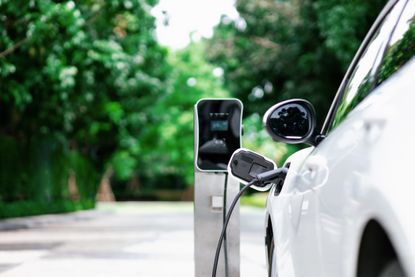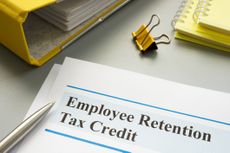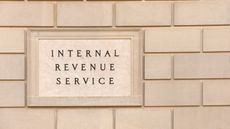Want to Lease an EV? There's a Tax Credit 'Loophole' for That
If you're trying to decide whether to lease or buy an electric vehicle, here's what you need to know about how the EV lease tax credit works.


The number of people choosing to lease an EV is growing. Data show that nearly 37% of electric vehicles were leased overall in April, up more than 10% from the first quarter of this year, according to Edmunds. And while there are many reasons why drivers opt to leave vs. buy a vehicle, the recent boost in electric car leases is partly due to a federal EV lease tax credit “loophole” in the Inflation Reduction Act (IRA).
So, are you in the market for a new electric vehicle? If so, here’s some tax information that might help you decide whether to buy or lease an EV.
More from Kiplinger: How the New EV Tax Credit Works

Sign up for Kiplinger’s Free E-Newsletters
Profit and prosper with the best of expert advice on investing, taxes, retirement, personal finance and more - straight to your e-mail.
Profit and prosper with the best of expert advice - straight to your e-mail.
Do you get the federal EV tax credit if you lease an EV?
- There is a tax credit available for leased electric vehicles.
- There’s also a catch: The tax credit belongs to the lessor, not to you, the lessee.
Qualified buyers who meet certain income limits can receive a federal tax credit of up to $7,500 for purchasing qualifying "clean vehicles." There is also a tax credit available for eligible used clean vehicles.
As Kiplinger has reported, the federal EV tax credit was made possible by the Inflation Reduction Act, enacted last year, which contains billions of dollars in clean energy tax incentives. However, strict eligibility requirements mean that not all electric vehicles qualify for the full federal credit amount, and not all buyers qualify due to income limits for the credit.
The EV tax credit 'loophole' for leasing
That’s where the so-called “EV lease loophole” comes in. Under the IRA, leased electric vehicles are classified as "commercial vehicles," making them eligible for the full federal clean vehicle credit without meeting strict battery and sourcing requirements.
What does this mean if you want to lease an EV? That means you could have a wider selection of electric vehicles to potentially save money on if the dealer agrees to pass the tax credit savings on to you. However, remember that the dealer receives the tax credit (not you). So, any savings you receive would be in the form of a rebate or reduced lease price. (And some dealers won't pass on the credit savings.)
There’s another potential tax-related advantage to leasing an electric vehicle. You don't have to worry about your income affecting your eligibility for the credit. Since the dealer holds the tax credit, income limits for the EV tax credit don’t, at this time, apply as they do when you purchase an electric vehicle and want to claim the tax credit.
Leasing vs. buying an electric vehicle
Even when tax incentives aren’t involved, deciding whether to buy or lease a car is a key decision for many shoppers. Some people won't save money leasing a car and others don't like the mileage limitations involved. But some potential benefits of leasing a vehicle include:
- Typically lower monthly payments
- A generally lower down payment
- Warranty coverage
- Access to a selection of newer cars
- Ability to walk away after the lease term ends and you’ve satisfied your lease obligations
But leasing an electric vehicle has the previously mentioned added benefit of tax credit eligibility. (Because the lessor “owns” the credit, you don’t have to worry about claiming the electric vehicle tax credit on your federal return or not qualifying for the credit due to income limits.) Also, if the dealer passes on the savings from the tax credit to you, your monthly lease payments might also be lower because of the discount.
EV lease deals: Are EVs becoming more affordable?
High car prices — not just for electric vehicles, but for traditional automobiles — are another reason why an EV lease is an attractive option for some buyers. Recognizing this, some industry manufacturers, most recently Tesla, have reduced starting prices on popular EV models.
Notably, some of those price cuts have made various models and versions eligible for the full $7,500 federal EV tax credit. And when those price cuts are combined with federal and state EV tax incentives, buyers can get certain electric vehicles at significant discounts.
For example, Colorado’s state electric vehicle tax credit rose to $5,000, from $2,000, as of July 1. That state tax incentive can be combined with the $7,500 federal tax incentive. So, a Coloradan who meets federal income eligibility could get up to $12,500 worth of tax credits on a qualifying electric car. (The potential savings would be higher on an electric truck.)
Note: Other states offer electric vehicle tax incentives (this interactive site from the Alternative Fuels Data Center lists some), and the amounts and eligibility rules vary.
Some manufacturers lure consumers who may want to lease an EV with advertisements for "lease cash," a "lease credit," or an "EV lease bonus." These, and other terms like the "hybrid/electric federal tax credit," essentially refer to the EV tax credit that can, as mentioned, reduce the cost of an EV lease.
While tax credit enticements could bring down the cost of an electric vehicle lease, recent EV price cuts and state and federal tax incentives could also incentivize people who want to buy an electric vehicle. But keep in mind that some state EV tax credits may or may not apply to leases, and each state tax credit has its rules and restrictions.
And...if that didn’t make your lease vs. buy decision harder, next year, eligible buyers can opt to take the federal EV Tax credit at the point of sale on qualifying electric vehicles rather than as a traditional tax credit when they file their federal return.
Related Content

As the senior tax editor at Kiplinger.com, Kelley R. Taylor simplifies federal and state tax information, news, and developments to help empower readers. Kelley has over two decades of experience advising on and covering education, law, finance, and tax as a corporate attorney and business journalist.
-
-
 Drone Medicine Deliveries To Take Flight at Cleveland Clinic
Drone Medicine Deliveries To Take Flight at Cleveland ClinicLook, up in the sky! That drone might just have your medicines in tow.
By Joey Solitro Published
-
 Stock Market Today: Stocks Extend Monthly Losing Streak
Stock Market Today: Stocks Extend Monthly Losing StreakThe main indexes ended Tuesday with modest gains but finished October in the red.
By Karee Venema Published
-
 Charitable Donations: What To Know About Scams and Taxes Before You Give
Charitable Donations: What To Know About Scams and Taxes Before You GiveDonations Giving to a charity can make you feel good and lower your tax bill, but the IRS says to beware of fake charities.
By Katelyn Washington Last updated
-
 Should You Withdraw Your ERC Claim?
Should You Withdraw Your ERC Claim?Tax Credits The IRS says certain businesses can withdraw potentially fraudulent employee retention tax credit claims.
By Katelyn Washington Published
-
 Virginia Sales Tax Holiday Weekend
Virginia Sales Tax Holiday WeekendSales Tax A new budget deal in Virginia meant the return of a popular sales tax holiday.
By Kelley R. Taylor Last updated
-
 Oregon ‘Kicker’ Credit: Who Qualifies and What’s It Worth?
Oregon ‘Kicker’ Credit: Who Qualifies and What’s It Worth?State Tax Will you get an Oregon kicker rebate in 2024? Here’s how much money you can expect.
By Katelyn Washington Published
-
 IRS Promises Fewer Audits of Earned Income Tax Credit Claims
IRS Promises Fewer Audits of Earned Income Tax Credit ClaimsIRS Audits After years of auditing some taxpayers with lower incomes at higher rates, the IRS says it’s making a change.
By Kelley R. Taylor Published
-
 How Much Will You Save Under the Arkansas Tax Cut Bill?
How Much Will You Save Under the Arkansas Tax Cut Bill?State Tax Another Arkansas tax cut bill means more tax cuts, but how much money will you save with the new changes?
By Katelyn Washington Published
-
 IRS Won’t Process New Employee Retention Credit (ERC) Tax Credit Claims in 2023
IRS Won’t Process New Employee Retention Credit (ERC) Tax Credit Claims in 2023Tax Credits Due to an alarming amount of fraud, the IRS has stopped processing new ERC tax credit claims.
By Kelley R. Taylor Last updated
-
 Do You Qualify for a Michigan Home Heating Tax Credit?
Do You Qualify for a Michigan Home Heating Tax Credit?State Tax Time is almost out to apply for the Michigan Home Heating Tax Credit. Here’s what you need to know about eligibility and filing your application.
By Katelyn Washington Published









